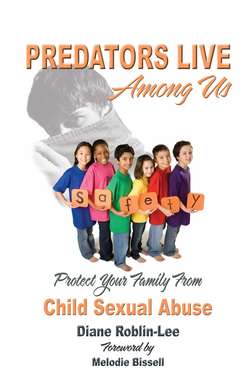Читать книгу Predators Live Among us - Diane Roblin Lee - Страница 16
На сайте Литреса книга снята с продажи.
Known incidents—the tip of the iceberg
ОглавлениеCounselors on the front lines of the epidemic of child sexual abuse know that incarcerated sex offenders are only the tip of the iceberg in terms of the proportion of active sex offenders.
Most incidents of child sex abuse are never reported—for a variety of reasons.
• Fear of retaliation by the offender—Many offenders control their victims with threats.
• Fear of not being believed—Particularly in cases where the abuser is highly respected in the family or community, the victim often fears that he or she will not be believed.
• The shame of things done in secret—It’s embarrassing to have people know what one has done on an intimate level.
• The shame of enjoyment—Not all touches by an offender are distasteful to a child. Knowing that what is happening is wrong and yet finding occasional pleasure in the relationship makes a child feel ashamed of himself/herself.
• Love for the offender—Offenders are sometimes dearly loved family members who shamefully confuse children with loving touches combined with inappropriate touches.
• Protection of the family—It’s not uncommon for a child to fear that they will ruin their families if they tell.
• Fear of the ordeal of testifying—The thought of facing one’s abuser in court can be overwhelming. In trying to protect their children from further damage, parents often try to sidestep the court process and deal with the situation the best way they know how.
• Fear of peer group reaction—“What will my friends think of me if I tell?”
• Deer in the headlights—It’s not uncommon for a victim to “freeze” like a deer in the headlights, when abuse occurs. The traumatic experience paralyzes them in terms of ability to seek help.
• Confusion—Little children do not have the same frames of reference as adults. They do not process things the same way. They don’t have the life experiences necessary to know how things will play out. Living between an offender who is instructing him to be silent and a parent who is teaching him or her to be vocal about bad touches can be a very confusing place for a child.
• Attempts by the family at cover-up—It is not uncommon for a wife who does not have her own resources and who is entirely dependant on her husband, to believe the promises of the offender that he will stop offending and not report the abuse.
In the words of sexual abuse specialist Roland C. Summit,
“In the classic role reversal of child abuse, the child is given the power to destroy the family and the responsibility to keep it together. The child, not the parent, must mobilize the altruism and self-control to insure the survival of the others. The child, in short, must secretly assume many of the role-functions ordinarily assigned to the mother.
“There is an inevitable splitting of conventional moral values. Maintaining a lie to keep the secret is the ultimate virtue, while telling the truth would be the greatest sin. A child thus victimized will appear to accept or to seek sexual contact without complaint.”
A child is never, never to be regarded as complicit in sexual abuse. As Dr. David Finkelhor, a psychologist at the University of New Hampshire who has written extensively on the subject of child sexual abuse, states,
“For true consent to occur, two conditions must prevail. A person must know what it is that he or she is consenting to and a person must be free to say yes or no.”
Obviously, children do not have the capacity to give consent.
